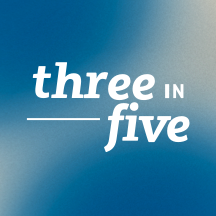Explore institutional insights
- Please enter a search term.
-
Insights
Stay up to date

Market update

Investor insights
-
Investments
Stay up to date

Market update

Investor insights
-
About us
Stay up to date
Learn more about our investment group

Market update

Investor insights
- Please enter a search term.
- Investments
-
Insights
- Back
- Insights
- Insights Overview
-
All insights
- Back
- All insights Overview
- Cash equitization: liquidity with flexibility
- Q3 2021: Investment grade private credit update
- Evaluating private credit opportunities in today’s market
- Leverage and derivatives, powerful tools for pension plans
- 2022 BentallGreenOak Perspective report
- Canadian Pension Risk Strategies 2022
- 2022 Mid-year Global Investment Outlook
- 2022 Corporate Responsibility Summary
- Q3 2022 Investment Grade Private Credit Market Update
- Q3 2022: Quarterly Inflation Watch
- Crescent Capital Markets Q3 2022 Update
- Multi-Asset Credit Strategy: October 2022 Update
- Update on the Real Return Bond Market
- SLC Management Update: real return bonds cessation announcement
- Multi-Asset Credit Strategy: November 2022 Update
- Multi-Asset Credit Strategy: December 2022 Update
- 2023 Global Investment Outlook
- Diversifying fixed income portfolios with alternatives
- Q4 2022: Quarterly Inflation Watch
- Q4 2022: Investment Grade Private Credit update
- Multi-Asset Credit Strategy: January 2023 Update
- Federal budget implications for Canadian preferred shares
- Q1 2023: Quarterly Inflation Watch
- Q1 2023: Investment Grade Private Credit update
- 2023 Mid-year Global Investment Outlook
- Q2 2023: Investment Grade Private Credit update
- July 2023: Inflation watch
- Q3 2023: Investment Grade Private Credit update
- September 2023: Inflation watch
- Narrowly syndicated credit: yield opportunities in an underexplored niche
- December 2023: Inflation Watch
- 2024 Global Investment Outlook
- Q4 2023: Investment Grade Private Credit update
- Looking under the hood at below-IG fixed income
- Q1 2024: Investment Grade Private Credit update
- Q1 2024: Inflation Watch
- Canadian Pension Risk Strategies 2024
- Insurance solutions
- Retirement plan solutions
- Sustainable Investing
- Market updates
-
Three in Five Podcast
- Back
- Three in Five Podcast Overview
- Mark Attanasio on the changing landscape of private credit
- James Slotnick on the U.S. midterm elections
- James Slotnick on the 2022 U.S. midterm elections
- Andrew and John on commonalities in investment grade private credit and narrowly syndicated bank loans
- Laila on operational considerations for investment grade private credit investors
- Cliff Corso on opportunity in the high net worth market
- Kate McKeon on sustainable investing and Net Zero
- Ben Greene on education, allyship, and the trans experience
- Melissa on the importance of the client experience
- Cristina Medina on Invest in Girls
- Steve on the Canadian P&C insurance market
- Rich and Peter on growing stress in the banking sector
- Doug on the debt ceiling
- Jim Blakemore on real estate debt
- Chris and Tim on the Special Financial Assistance Program for Taft Hartley plans
- Veronique on the evolution of LDI investing in Canada
- Chris Wright on the future of private credit
- Beth Brown on workplace burnout
- D.J. on the CMBS market
- Josh Davis on inner mastery and effective leadership
- James Slotnick on the politics of raising the U.S. debt ceiling
- Kevin Quinlan on climate change as a material investment risk
- Steve Peacher on the 10-year anniversary of SLC Management
- David Hamlin on fundamental credit research
- Michael Schnitman on alternatives in the high net worth space
- Steve Peacher reflects on challenges and milestones in 2023
- Subscribe
- About us
- Careers
- Contact us
- Newsroom
- Thank you
- CANADA | EN

Welcome!
Please select your country and language below:
Episode 45
april 6, 2022
Steve Weiss on the CFA Institute’s Diversity, Equity and Inclusion Code
Steve Weiss, Senior Managing Director, Head of U.S. Business Development at SLC Management, discusses the CFA’s new DE&I code and why SLC Management chose to be a founding signatory.
Steve Peacher: Hi everybody, this is Steve Peacher from SLC Management and we're here for another session of “Three in Five.” I’m very excited to be joined by Steve Weiss who's calling from Denver. Steve’s a senior managing director and head of U.S. business development. He's out doing some business development Denver right now, so Steve thanks for taking a moment in the middle of your travels to talk about DE&I.
Steve Weiss (he/him): Oh yeah, no problem psyched to do it.
Steve Peacher: So, a couple questions and this relates to the new CFA Institute's diversity, equity inclusion code. Which is, I don't know when they released it, but this is the CFAs guidance on this, it's something that we've looked a lot at you've been involved in and that's what we want to talk about so maybe we can start, if I can ask you just to tell our listeners a little bit about this new code that's come out of the CFA Institute. What what's it all about?
Steve Weiss (he/him): I’ll step back one second, because I think the first of all, I think people forget what the CFA, actually, Institute does. Everyone in our business knows it's a horrible hazing tests that you have to take over, hopefully, just three years to get into the business, but when we actually read their mission it actually makes sense why they're doing this DEI code. And their mission is “to lead the investment profession globally by promoting the highest standards ethics, education, and professional excellence for the ultimate benefit of society.” So, that's not what you think necessarily when you think about the CFA. So, when they went ahead and rolled out this code, it really it really makes sense. And the objectives with the code are threefold: really, it's to get the industry into a better position. I think everyone's working at this, everyone knows they can do better, everyone's trying. Probably need to make people try harder, but they're really trying to create a framework that all the firms all, all the asset management firms can hold each other accountable and make it a little bit measurable. I think a lot of people are going to focus on the measurement aspect of this, which is important but it's really a small part of what we're trying to do. So, the objectives are meet the industry where it is, in other words level set. Are we doing a great job or not a good job? Define key principles for the firms to implement, we'll talk about those in a second. And then provide a metrics-based reporting system. Ultimately, at the core of all this is action not just words, and the basic principles, and I’m not gonna go through all six I’ll kind of lump them together. It focuses on pipeline and talent acquisition. It focuses on promotion and retention and that promotion/retention is inclusivity at the heart of it, and then the last part is leadership and influence. You know, using our position as a leader to make this happen, and the goal is again to bring the belief that a diverse talent pool will lead to better investment outcomes for our clients who are also a very diverse group and that's at the core.
Steve Peacher: So, that the CFA Institute obviously wants asset managers like SLC Management to sign up for this. We obviously as an asset manager take that seriously we don't just sign up for things randomly. We want to know what we’re committing to, we put together a committee that thought about this and reviewed it. You are on that committee to decide whether we will actually wanted to be founding signatory of the code. So, and we decided to do that, as we deliberated that, as the committee deliberated that, what did we find compelling about this, and why did we sign up?
Steve Weiss (he/him): So, the committee that what you're talking about is the Allies Acting For Change, and that is effectively the SLC’s DEI committee, and this was important to us because when we think about diversity, equity, inclusion efforts, we think of it and to use investment lingo, a top-down bottom-up approach. Another way to say it is there's corporate DEI and then grassroots DEI, and so we think that it's, in order to drive change at the organization you need to have both working. And to sign up to the DEI code was basically a commitment, from you know we're saying at the top at SLC, as a founding signatory, this is very important and crucial. And it basically says that the folks at the top of leadership are on board with this and want this to happen. And then we as this committee and we as SLC at all the individual levels can then dig in on the grassroots efforts and really push DEI actions through the organization up to the top. So, it's kind of leaders walking the walk and pushing the objectives down and then every person in the company living and breathing those objectives.
Steve Peacher: So, you signed up voluntarily be part of this committee, the Allies Acting For Change. You know, you weren’t told to do it, so you know as it relates to that committee, as it relates to you know, considering things like this DEI code from the CFA Institute and how we want to interact with that, do we want to sign it, why’d you get involved, I mean why is this important from your perspective?
Steve Weiss (he/him): It's important to me because you know what this is a podcast so no one can see us, but we are effectively two middle aged white males in a leadership role. It's incumbent on us to drive change. We're in a position to do that and what's really helped me out in this is my family, I have the benefit of having a 26-year-old son and a 24-year-old daughter. My daughter is a social justice warrior and who is reminding me kind of on a daily basis about the privilege that I have at this position, and what I’m supposed to be doing with that privilege that comes to me. And I am lectured and schooled fairly regularly about bias and about the way I talk about things and really helping, she helps me understand what my role in this is, and so because of that I also think that's important. I think a lot of times we build these DEI committees, and we don't put senior, white leader males on these committees and it's important because we're in these positions of power and it's incumbent on us to really drive change.
Steve Peacher: Well, you know it does strike me that there's a there's a big generational change going on, you know you mentioned your daughter, I have kids the same age. They haven't chosen a career as a lawyer, but they're all they all seem very much tuned into it, they’re on the same frequency. And, so you know they talk about it, and I think that they do push parents like us and they do push society, and so I one of the optimistic views I have is that this is because of that generational change, we are going, this is not going to stop right, we are going to see this because it's what the next generation is all about, it's how they think and that's going to impact who they vote for and policies they want to see, and what they want companies to do. And so, I think I feel really good about that, and I think what you're describing your kids I see all over the place. And I also see in our younger employees, you know it's how they think. So, you know I like to end these with a personal question and a birdie told me to ask you about your musical pursuits so tell the audience about your musical pursuits.
Steve Weiss (he/him): Okay, so I’ve been playing the drums since I was eight years old, and I can think over that time period there’s probably only been about one or two years total that I haven't been in a band. And so, I am constantly looking for bands. Covid has been tough as a musician, couldn't really get together and rehearse but yeah. I love the job that I have, I still would 100% probably trade it to be a rock star, but and I’m not totally ending that pursuit, I will be in bands until I am a rock star.
Steve Peacher: I saw a cool video the other day, I think it was of ‘Crossroads,’ that the song by Led Zeppelin, it was a video of all these musicians at different locations coming together to play that. Really cool video. Well, listen, thank you very much Steve for taking the time, I know you're traveling in the middle of a lot so thank you for taking a bit of time, and thanks for everybody for listening to this episode of “Three in Five.”
Steve Weiss (he/him): Thanks, it was fun.
This podcast is intended for institutional investors. The information in this podcast is not intended to provide specific financial, tax, investment, insurance, legal or accounting advice and should not be relied upon and does not constitute a specific offer to buy and/or sell securities, insurance or investment services. Investors should consult with their professional advisors before acting upon any information contained in this podcast. This podcast may present materials or statements which reflect expectations or forecasts of future events. Such forward-looking statements are speculative in nature and may be subject to risks, uncertainties and assumptions and actual results which could differ significantly from the statements. As such, do not place undue reliance upon such forward-looking statements. All opinions and commentary are subject to change without notice and are provided in good faith without legal responsibility.



